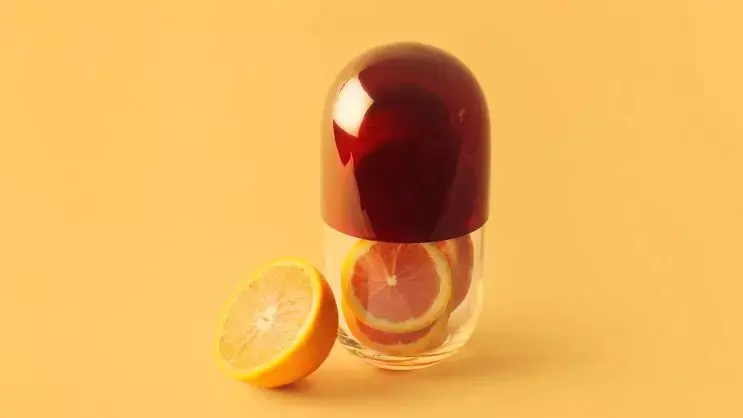- Home
- Medical news & Guidelines
- Anesthesiology
- Cardiology and CTVS
- Critical Care
- Dentistry
- Dermatology
- Diabetes and Endocrinology
- ENT
- Gastroenterology
- Medicine
- Nephrology
- Neurology
- Obstretics-Gynaecology
- Oncology
- Ophthalmology
- Orthopaedics
- Pediatrics-Neonatology
- Psychiatry
- Pulmonology
- Radiology
- Surgery
- Urology
- Laboratory Medicine
- Diet
- Nursing
- Paramedical
- Physiotherapy
- Health news
- Fact Check
- Bone Health Fact Check
- Brain Health Fact Check
- Cancer Related Fact Check
- Child Care Fact Check
- Dental and oral health fact check
- Diabetes and metabolic health fact check
- Diet and Nutrition Fact Check
- Eye and ENT Care Fact Check
- Fitness fact check
- Gut health fact check
- Heart health fact check
- Kidney health fact check
- Medical education fact check
- Men's health fact check
- Respiratory fact check
- Skin and hair care fact check
- Vaccine and Immunization fact check
- Women's health fact check
- AYUSH
- State News
- Andaman and Nicobar Islands
- Andhra Pradesh
- Arunachal Pradesh
- Assam
- Bihar
- Chandigarh
- Chattisgarh
- Dadra and Nagar Haveli
- Daman and Diu
- Delhi
- Goa
- Gujarat
- Haryana
- Himachal Pradesh
- Jammu & Kashmir
- Jharkhand
- Karnataka
- Kerala
- Ladakh
- Lakshadweep
- Madhya Pradesh
- Maharashtra
- Manipur
- Meghalaya
- Mizoram
- Nagaland
- Odisha
- Puducherry
- Punjab
- Rajasthan
- Sikkim
- Tamil Nadu
- Telangana
- Tripura
- Uttar Pradesh
- Uttrakhand
- West Bengal
- Medical Education
- Industry
Vitamin C reduces serum uric acid in hyperuricemia patients, claims study

A recent meta-analysis has demonstrated that vitamin C supplementation had a significant effect of lowering Serum Uric Acid (SUA). The study report ,put forth in Complementary Therapies in Medicine, has further elaborated that the duration of intervention, age of the subjects and study quality have an impact on the effect of oral vitamin C.
In the last decade, the prevalence of hyperuricemia has increased with a trend toward onset at younger age. It has been reported that Serum Uric Acid (SUA) played an important role in the development of metabolic syndrome, including obesity, hyperglycemia, hypertension and hyperlipidemia. Besides, a cross-sectional survey has been showed that a higher Serum Uric Acid (SUA) level was associated with an increased prevalence of cardiovascular diseases, diabetic kidney disease and a variety of diabetic complications. Therefore, it's urgent to explore a way to control SUA. Till date, research on the effect of oral vitamin C supplementation on serum uric acid (SUA) have been inconsistent.
With this background, researchers undertook the study with the purpose to explore the association between oral vitamin C supplementation and serum uric acid.
PUBMED, EMBASE, CNKI, Web of Science, and CENTRAL of Cochrane library databases were searched to identify relevant articles published up to February 2020.
Results revealed some new facts.
- The total sixteen eligible randomized controlled trials (RCTs) containing 1,013 participants were included in this meta-analysis.
- The pooled findings showed that vitamin C supplementation had a significant effect of lowering SUA.
- The subgroup analyses showed that the effect of vitamin C supplementation on SUA has positive association with mean age of participants <65 years old, the use of placebo or blank control, duration of trials <1 month and high-quality studies.
- In addition, sensitivity analysis showed that the results of this study were stable. Both Egger's test and Begg's test demonstrated that no evidence of significant publication bias.
The authors made some important observations based on the results. "First of all, our results show that there is no statistically significant difference in effect between high and low intervention doses. Secondly, this study highlights that the effect of vitamin C intervention alone is better than that of vitamin C combined with other drugs. Therefore, the interaction between different drugs must be considered in clinical medication. Thirdly, the intervention was less effective in subjects older than 65 years of age. This may be because the elderly are often accompanied by other diseases" the team concluded.
For full article follow the link:https://doi.org/10.1016/j.ctim.2021.102761
Source: Complementary Therapies in Medicine
Dr Satabdi Saha (BDS, MDS) is a practicing pediatric dentist with a keen interest in new medical researches and updates. She has completed her BDS from North Bengal Dental College ,Darjeeling. Then she went on to secure an ALL INDIA NEET PG rank and completed her MDS from the first dental college in the country – Dr R. Ahmed Dental College and Hospital. She is currently attached to The Marwari Relief Society Hospital as a consultant along with private practice of 2 years. She has published scientific papers in national and international journals. Her strong passion of sharing knowledge with the medical fraternity has motivated her to be a part of Medical Dialogues.
Dr Kamal Kant Kohli-MBBS, DTCD- a chest specialist with more than 30 years of practice and a flair for writing clinical articles, Dr Kamal Kant Kohli joined Medical Dialogues as a Chief Editor of Medical News. Besides writing articles, as an editor, he proofreads and verifies all the medical content published on Medical Dialogues including those coming from journals, studies,medical conferences,guidelines etc. Email: drkohli@medicaldialogues.in. Contact no. 011-43720751


